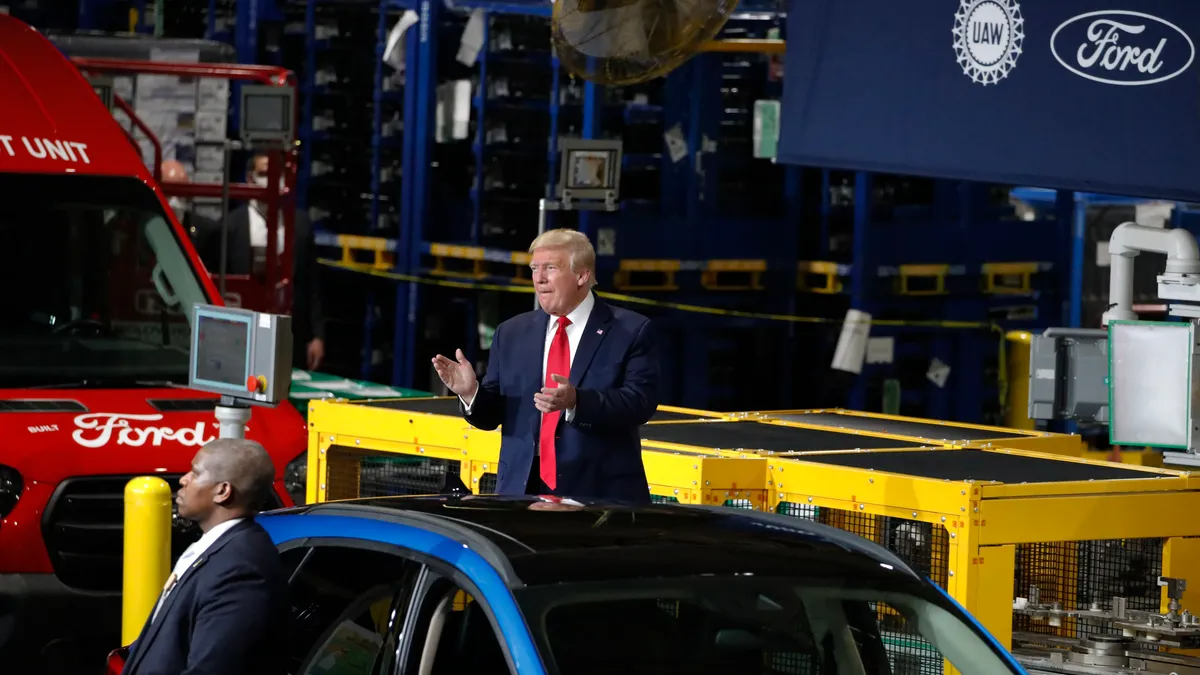
The Vehicle Industry Faces Challenges from New Tariffs
The automotive industry is abuzz with concern after President Donald Trump's recent announcement of a sweeping 25% tariff on foreign-made automobiles, expected to impose significant financial strain on manufacturers and consumers alike. As the epicenter of automotive manufacturing, Michigan could face the brunt of these changes, with industry experts predicting that car prices may soar dramatically.
Understanding the Manufacturing Impact
Brian Pannebecker, a local advocate for American labor, echoed the long-standing feelings of workers when he spoke at the announcement, recalling the idled plants littering the Detroit area due to outsourcing and lack of investment. Local manufacturers, such as Citic Dicastal, the world's largest aluminum wheel manufacturer, are already feeling the pinch. Dale Hadel, the company's Director of Sales, pointed out that increased costs on raw materials, especially aluminum, could lead to higher prices for consumers. He explained how a 25% tariff affects pricing: "If aluminum is $1 a pound, after tariffs, it's $1.25—a daunting increase that can quickly trickle down to higher vehicle prices."
Projected Price Increases for Michigan Vehicle Buyers
According to a report from the Lansing-based Anderson Economic Group, the tariff's effects on American vehicles could lead to price increases ranging from $2,500 to as much as $10,000, depending on the vehicle. Imports might face surcharges approaching $20,000. For Michigan consumers, already dealing with high living costs, this could mean a significant dent in plans for new car purchases, further complicating family budgets and mobility options.
What It Means for Michigan's Automotive Industry
No state faces as much risk from these tariffs as Michigan, which stands as the heart of America's automotive manufacturing sector. Patrick Anderson, CEO of the Anderson Group, highlighted Michigan's vulnerable position, stating, "We are literally the epicenter of tariff effects, probably right in the middle of the Ambassador Bridge between Detroit and Windsor." The state's economy has thrived for decades on the automotive supply chain, including transportation, manufacturing, and sales. As tariffs tighten margins, local dealerships may struggle to attract buyers, jeopardizing jobs and economic stability.
Local Dealerships and Potential Consumer Response
As the repercussions of the tariffs settle in, vehicle purchases could slow, driving more potential buyers to reconsider their options. With the automotive marketplace shifting, local Detroit car dealerships may have to adjust strategies or create more appealing financing offers to entice hesitant customers. Additionally, some might accelerate their inquiries into electric vehicles, particularly as more electric models emerge in response to sustainability trends.
Future Predictions: The Long-Term Effects
Industry analysts are keeping a close eye on the shifting automotive landscape both locally and nationally. As tariffs reshape market dynamics, the push towards more sustainable transportation solutions may gain momentum. Consumers are increasingly interested in Michigan's electric vehicles and public transit options, and they may pivot towards these alternatives in response to higher costs for gasoline and traditional vehicles. Public transit systems in Metro Detroit could also benefit as residents seek economical means of transportation.
The Bottom Line: Stay Informed and Prepared
For the residents and businesses of Metro Detroit, understanding these shifts in the automotive industry is crucial. Anyone considering a vehicle purchase should remain vigilant regarding changing prices and local dealership strategies. Awareness of available technologies, including EV charging stations and options for ride-sharing, may help mitigate some transportation challenges arising from impending price hikes. Staying informed will empower consumers and encourage better decision-making in an evolving automotive landscape.
Call to Action: As the impact of these tariffs unfolds, it's essential for consumers to stay informed about their options and the overall transportation landscape. Consider exploring local dealerships and the latest in electric vehicles to remain ahead of any changes in the market.
 Add Row
Add Row  Add
Add 



Write A Comment